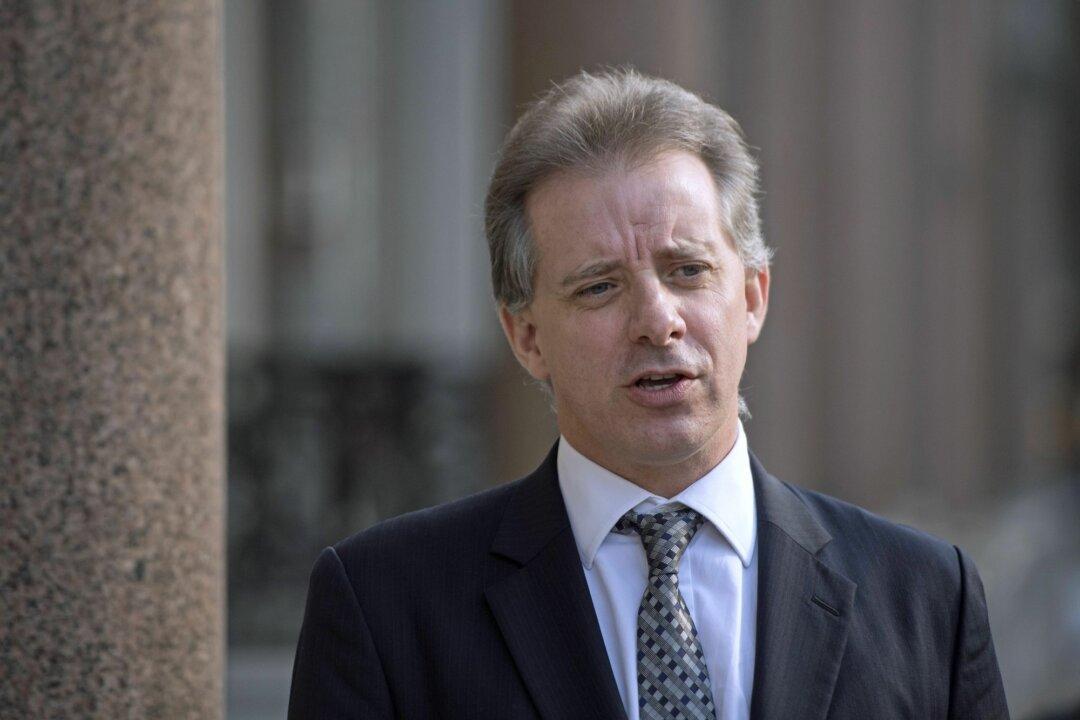Federal investigators from the Justice Department’s watchdog, the Office of the Inspector General (OIG), have interviewed Christopher Steele, the ex-British MI6 agent who authored the infamous dossier that alleged the Trump campaign had colluded with Russia to influence the 2016 U.S. presidential election.
Reuters reported on July 9, citing two unnamed sources, that three attorneys from the OIG interviewed Steele in London in early June, while President Donald Trump was there for a formal state visit. Politico reported that the questioning lasted 16 hours over two days and that the investigators felt he had “offered new and important information.”




